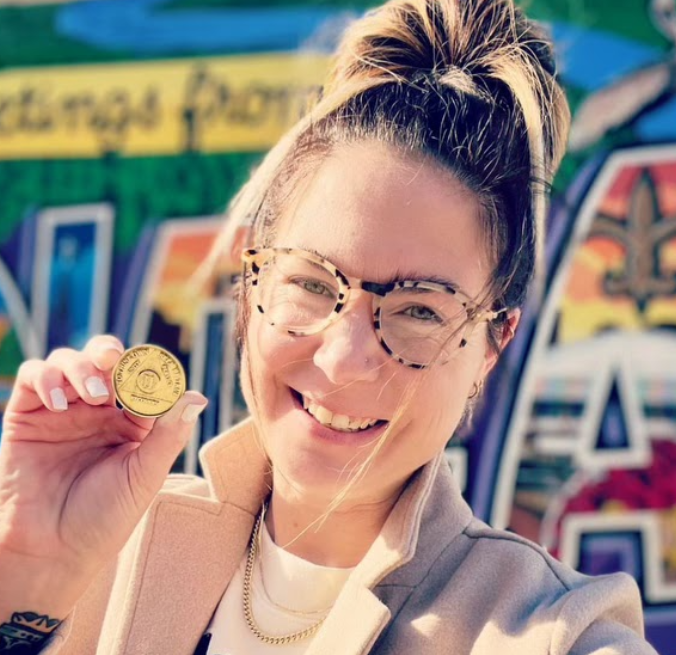
The beginning of a new year is usually a time when people make a change in life or start a new chapter in it. A common New Year’s resolution is improved health, and that sometimes involves reducing or cutting out alcohol or other “vices.”
Maggie Darling began what she calls her sober journey three years ago. Maggie is a homicide detective with the New Orleans Police Department. Her time with the NOPD is approaching 25 years. To say the least, Maggie has seen some events and situations. In my view, Maggie’s line of work sometimes calls for a stiff drink or two at the end of the day. For many years, Maggie used alcohol as a coping mechanism, not only for what she saw on the job, but also for what other people couldn’t see.
“Honestly, I tell people now I lack confidence. It blows their mind because I guess I’ve been faking it until I make it,” Maggie told me.
Drinking alcohol helped Maggie feel more confident. There’s a reason why it’s called “liquid courage”. Born and raised in New Orleans, having a drink in hand at the seemingly never-ending number of festivals and celebrations in the city just came with the territory for Maggie. That’s probably so for many New Orleans natives.
“There’s St. Patrick’s Day, everybody’s part of some krewe or some type of social and pleasure club. And if you remove alcohol from it, what do you have after that? It’s a scary thought,” Maggie said.
Alcohol was a consistent part of Maggie’s life until an incident in 2020. Following that incident, Maggie put herself in a self-imposed “timeout” with alcohol. Initially, Maggie said she would give it one year and then decide if she would stay with sobriety. She’s now in year three of her sober journey. In a very honest and emotional conversation, Maggie describes how sobriety has helped her become more capable of processing some of the trauma she’s experienced, including the death of her fiancé. Listen to the podcast here.
